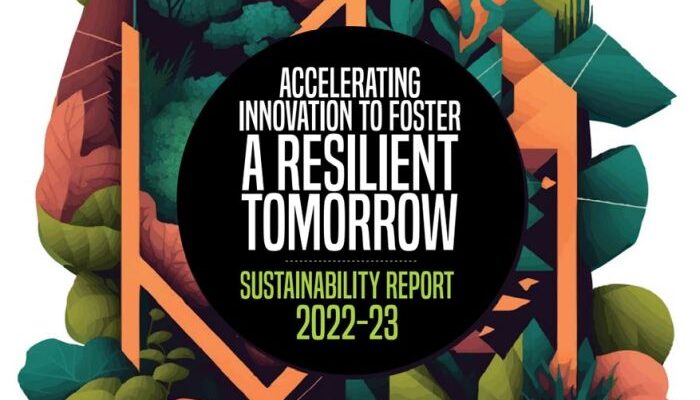New Delhi: Insecticides (India) Limited (IIL), a leading player in the country’s crop protection and crop nutrition industry, has released its Sustainability Report FY23. The report, titled ‘Accelerating Innovation to Foster a Resilient Tomorrow,’ sheds light on IIL’s focus on environmental, social, and governance (ESG) aspects which, IIL claims, “are of paramount importance to the organisation.”
The IIL Sustainability (ESG) Report provides insights into IIL’s strategic approach, endeavours, and performance concerning relevant ESG material aspects. This initiative, in addition to the annual report, reflects IIL’s persistent journey towards a sustainable future. For FY23, the report discloses non-financial information, activities, and sustainability initiatives adhering to the Global Reporting Initiative (GRI) Standards. External Assurance, provided by Ernst & Young Associates, lends credibility to the ESG disclosure, aligning with International Standards on Assurance Engagements 3000 [ISAE 3000 (Revised)].
You may also like to read: IPL Biologicals signs MoU with Gujarat govt for development of agro biologicals manufacturing facility
IIL, with an established portfolio of crop protection and nutrition products, including fungicides, insecticides, herbicides & biologicals and Plant Growth Regulators (PGRs), has also expanded its offerings to include biologicals a few years back, emphasising sustainable growth. The report highlights IIL’s commitment to being a solution provider through specialised products, catering not only to the Indian market but also having a foothold in more than 24 countries worldwide.
Speaking on the report, Rajesh Aggarwal, Managing Director, Insecticides (India), said, “Our ESG journey reflects our understanding of the challenges posed to the industry. By adopting a sustainable approach, we aim to navigate these challenges and thrive in the evolving scene of customer demands. Our commitment lies in developing high-quality, sustainable products, implementing process improvements, and fostering a culture rooted in respect and ethics. We think that businesses that adopt a responsible and sustainable method of working will prosper in the future by keeping up with the quickly evolving demands of the customers.”
You may also like to read – Need to make agricultural research demand driven with private sector engagement: Dr. Rajeev Varshney, Murdoch University
“The report outlines IIL’s ESG performance. Some of the key initiatives put forward by the organisation are: – 30 per cent green belt conforming to air quality standards; 590.29 MT and 21.44 KL of hazardous waste disposed of; zero liquid discharge in 3 plants, 1,473.31 MW solar power plants contributing 9 per cent of total electricity; and Rs. 271.91 lakhs CSR spent,” said, Sandeep Aggarwal, CFO.
As a stepping stone in this journey of sustainability, we conducted our first materiality assessment to identify and prioritise the issues that have a direct or indirect impact on us and our ability to create value for our stakeholders. Some of those issues include energy and emissions, water, and diversity among other related areas. IIL has put forward various initiatives for these material issues as mentioned below.
In embracing digital transformation, IIL has streamlined processes at its Dahej plant, replacing manual paper-based reporting with online systems. This initiative resulted in time savings, reduced paper usage, and enhanced real-time process assessment, showcasing the positive impact of technology on operations.





